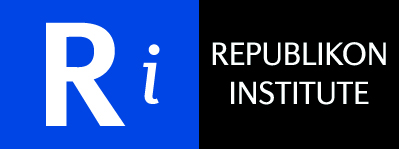
It is with great pleasure that I present Issue 4 of The Visio Journal. This issue features a debate on liberalism versus authoritarianism, which is fought in the realm of ideas, institutions, and public policies.
Over the past decade, sympathies and support for the authoritarianism have been spreading across Europe. Against this backdrop, are liberal ideas and public policies rooted in values and norms adhering to the strong rule of law, protected individual rights and freedoms, and limited government able to stand their ground?
In this issue, four papers are presented. In the first one, Kai Weiss articulates the historical perspective of the transition of liberal ideas and institutions in Europe starting in the 17th century. With the fall of the Iron Curtain, it appeared that liberalism was unstoppable and could not be successfully contested.
In recent years, liberal ideas and institutions have been attacked from many sides. Clearly, in several Eastern European countries the rule of law has been weakened, the freedom of the press and association have been curtailed, and economic freedoms have been in descent.
On the other hand, the liberal institutions are proving to be more robust in the Western European countries, though they had not been spared of the attacks. Weiss argues that for liberalism to continue to prevail, it needs to make a moral and cultural case for a free world.
Next, Dr. Eszter Nova analyses the introduction of the new Loan-for-Babies Program in Hungary, with the main tool being a state-subsidized loan that rolls into a non-refundable subsidy upon the birth of a certain number of children. Dr. Nova concludes that this policy bears all the hallmarks of an authoritarian staple by being dehumanizing and pitting demographic groups against each other.
Further, the policy leads to paternalism, distorts the housing market, and provides a conducive ground for cronyism.
Third, Dr. Athanasios Grammenos explores the rise of the New Right in Greece during the 2012-2019 period, and its impact on the country’s institutions and the respect of the human rights of people living in it. Dr. Grammenos argues that the collapse of the social-democratic Panhellenic Socialist Movement (PASOK) in 2012 created a space for the radical Left to become the new pole of the political system, followed by the conservatives responding with an appeal to the populist right-wing.
Hence, the political platform of the Greek New Right is entrenched with authoritarian attitudes cultivating anti-liberal ideas and policies.
Fourth, Dr. Elena Makrevska Disoska and Dr. Katerina Shapkova Kocevska lay out that institutions shape human behavior and reflect the norms and values in a society. Being an important determinant of economic prosperity, where institutions adhere to personal choice, self-ownership, and the rule of law, economies, and societies flourish.
This paper focuses on exploring the fractional effects of institutional changes on economic growth and on productivity. Their cross-country regression models demonstrate that institutions supporting human freedom and human capital have the strongest influence and are statistically significant determinants of economic growth and productivity in the selected economies of Eastern Europe.
Finally, I would like to recognize the generous contribution of the Friedrich Naumann Foundation for Freedom and its support for the journal.
Continue exploring:























